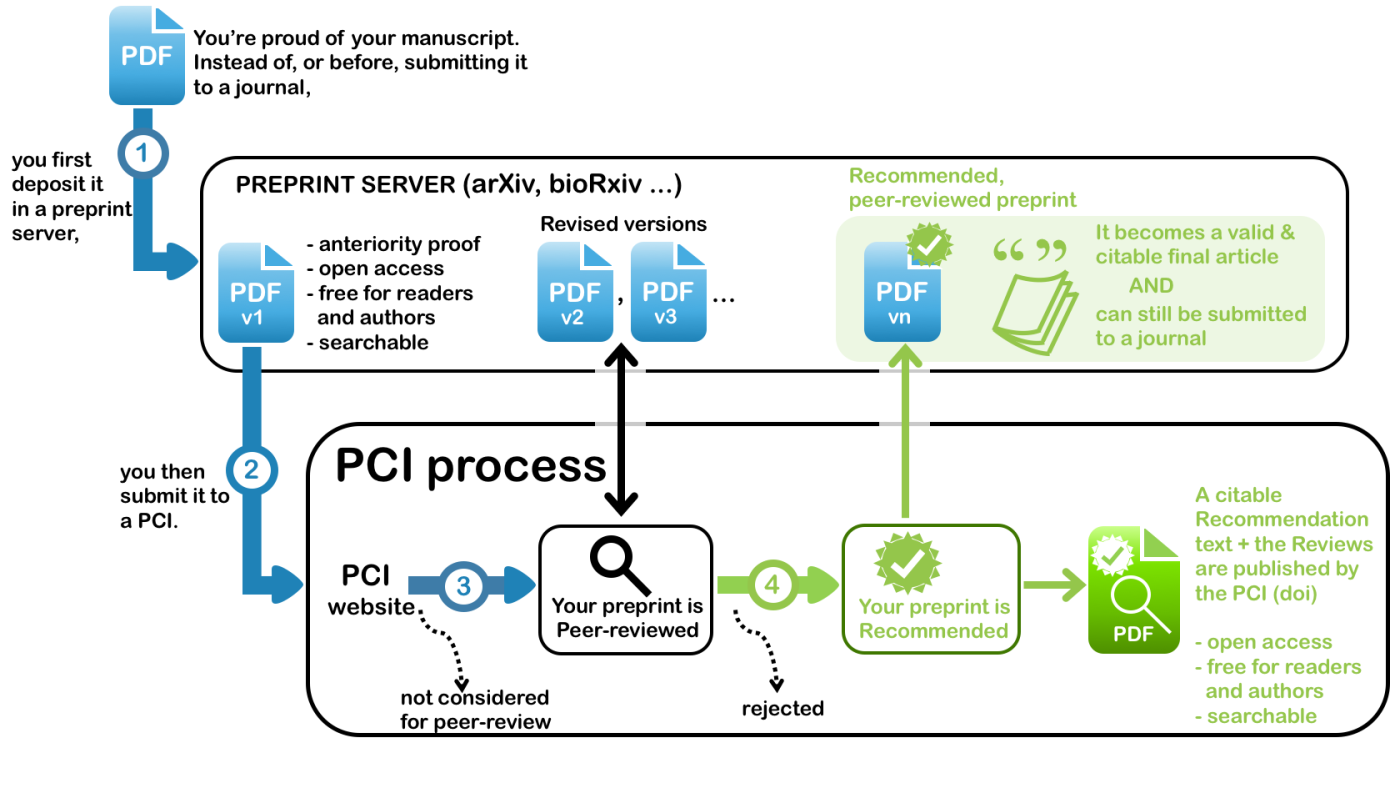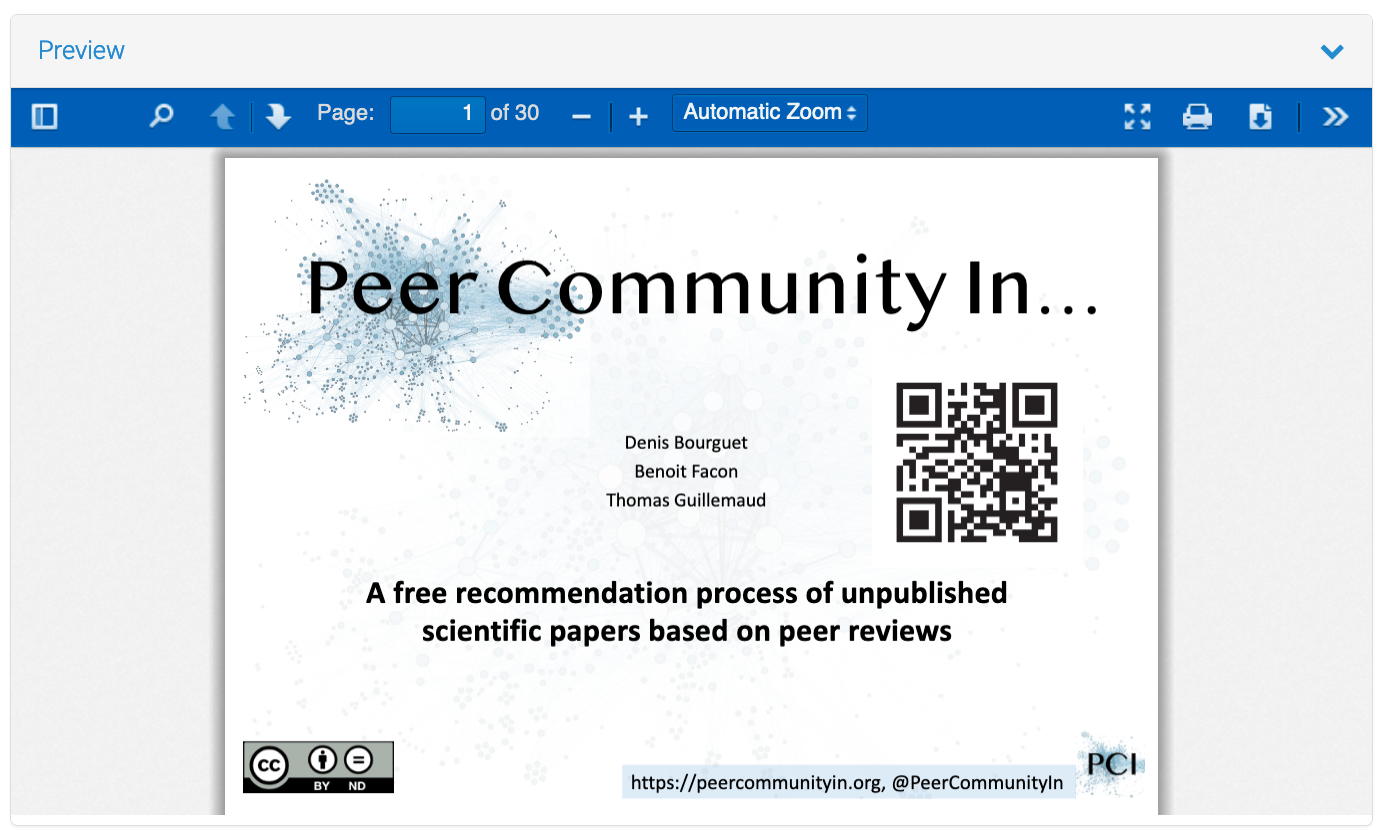A couple of days ago on May 15th in Leipzig, Germany at the Mx Planck Institute for Evolutionary Anthropology (MPI-EVA), Corina Logan had invited Denis Bourguet and Thomas Guillemaud from Peer Community In to give a seminar on their non-profit service to science:
A researcher-run solution to improving science and reducing reviewer burden: peer review of preprints and preregistrations

The current publication system and preprints
Dr. Denis Bourget set the frame by describing the flaws of the current system of scientific publications which are particularly expensive and not very transparent in their processing. He presented preprints as one possible solution to the mentioned problems in the system.
In academic publishing, a preprint is a version of a scholarly or scientific paper that precedes formal peer review and publication in a peer-reviewed scholarly or scientific journal. The preprint may be available, often as a non-typeset version available free, before and/or after a paper is published in a journal.
Wikipedia contributors. “Preprint.” Wikipedia, The Free Encyclopedia, June 3, 2019.
Peer Community In (PCI): a free public system for peer-reviewing and highlighting preprints
Dr. Thomas Guillemaud (on Twitter) explained in detail how the idea for PCI evolved and what the service offers to scientists as an alternative to the current publication system:
PCI is a non-profit scientific organization that aims to create specific communities of researchers reviewing and recommending, for free, unpublished preprints in their field (i.e. unpublished articles deposited on open online archives like arXiv.org, bioRxiv.org, osf.io/preprints, preprints.org a.o.).
Each PCI is a group of several hundred recommenders playing the role of editors who recommend such preprints based on peer-reviews to make them complete, reliable and citable articles, without the need for publication in ‘traditional’ journals (although the authors can submit their recommended preprints afterwards).
Evaluations and recommendations by a PCI are free of charge. When a recommender decides to recommend a preprint, he/she writes a recommendation text that is published along with all the editorial correspondence (reviews, recommender’s decisions, authors’ replies).
The preprint itself is not published by PCI: it remains in the preprint server where it was posted by the authors.

The first Peer Community In was launched in 2017: Peer Community in Evolutionary Biology (PCI Evol Biol); PCI Paleontology and PCI Ecology were launched in January 2018.
View the full Peer Community In presentation at

Doing science forward: peer review of preregistrations at PCI Ecology
Dr. Corina Logan (on Twitter | website) shared how she made her research program open and transparent to make it better and faster through the use of preregistrations.
The practice of registering a scientific study before it is conducted is called pre-registration. Pre-registration of studies serves to prevent publication bias and reduce data dredging. The use of registered reports is a means to address the replication crisis in scientific publishing. A registered report is a report that has been accepted for publication in advance by a journal based on the theoretical justification, experimental design, and the proposed statistical analysis.
Wikipedia contributors. “Pre-registration (scientific study).” Wikipedia, The Free Encyclopedia, June 3, 2019.
At PCI Ecology it is possible to have your prepregistrations peer reviewed on top of that.
View Corina’s full presentation at osf.io/bstph.
